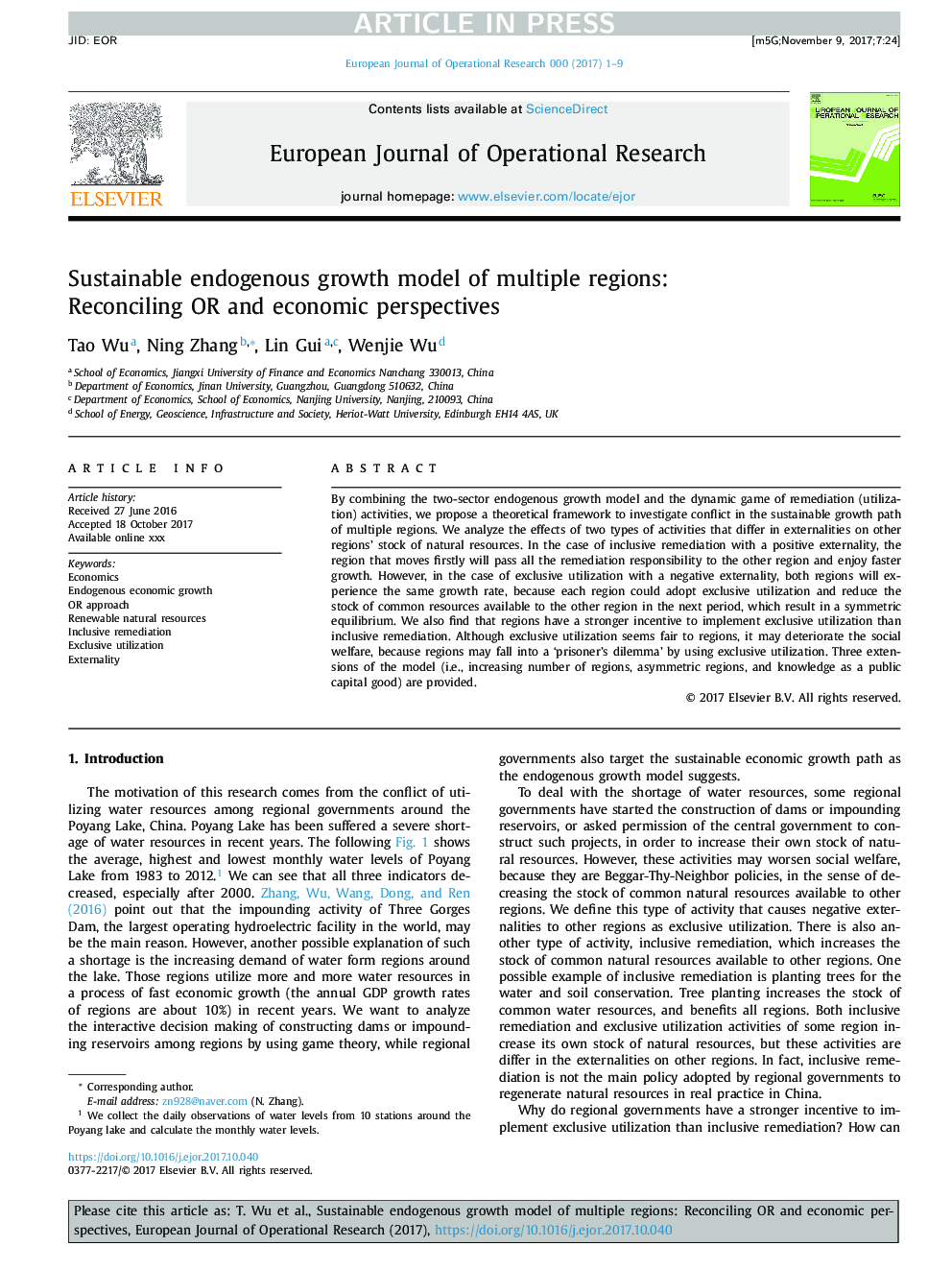| Article ID | Journal | Published Year | Pages | File Type |
|---|---|---|---|---|
| 6894755 | European Journal of Operational Research | 2018 | 9 Pages |
Abstract
By combining the two-sector endogenous growth model and the dynamic game of remediation (utilization) activities, we propose a theoretical framework to investigate conflict in the sustainable growth path of multiple regions. We analyze the effects of two types of activities that differ in externalities on other regions' stock of natural resources. In the case of inclusive remediation with a positive externality, the region that moves firstly will pass all the remediation responsibility to the other region and enjoy faster growth. However, in the case of exclusive utilization with a negative externality, both regions will experience the same growth rate, because each region could adopt exclusive utilization and reduce the stock of common resources available to the other region in the next period, which result in a symmetric equilibrium. We also find that regions have a stronger incentive to implement exclusive utilization than inclusive remediation. Although exclusive utilization seems fair to regions, it may deteriorate the social welfare, because regions may fall into a 'prisoner's dilemma' by using exclusive utilization. Three extensions of the model (i.e., increasing number of regions, asymmetric regions, and knowledge as a public capital good) are provided.
Related Topics
Physical Sciences and Engineering
Computer Science
Computer Science (General)
Authors
Tao Wu, Ning Zhang, Lin Gui, Wenjie Wu,
